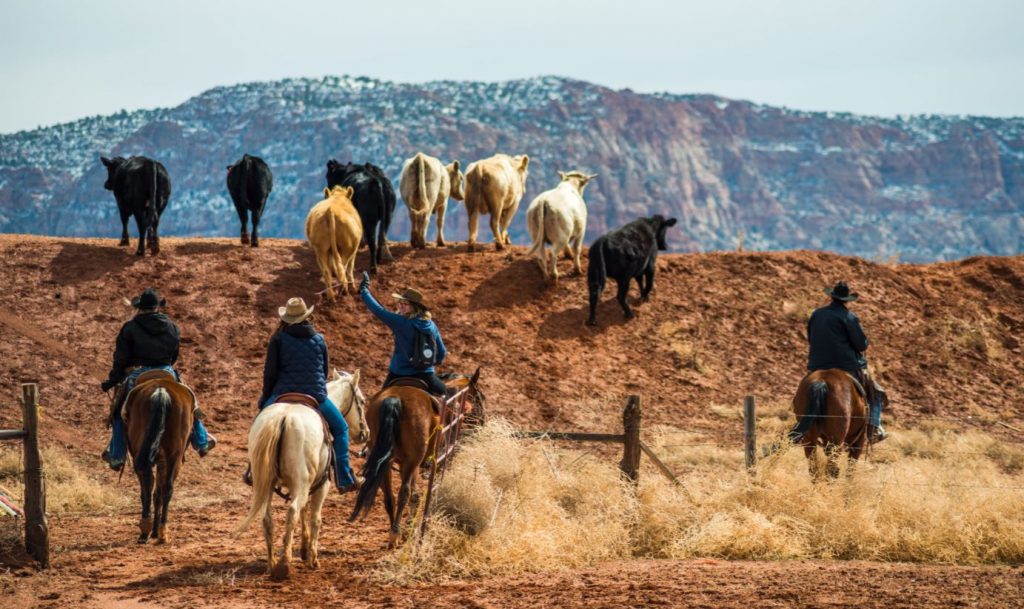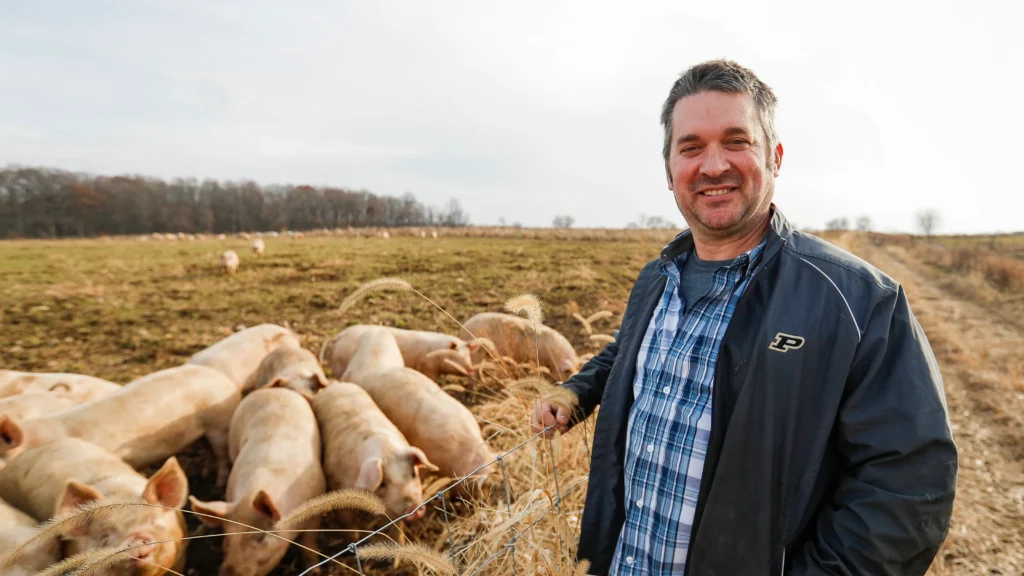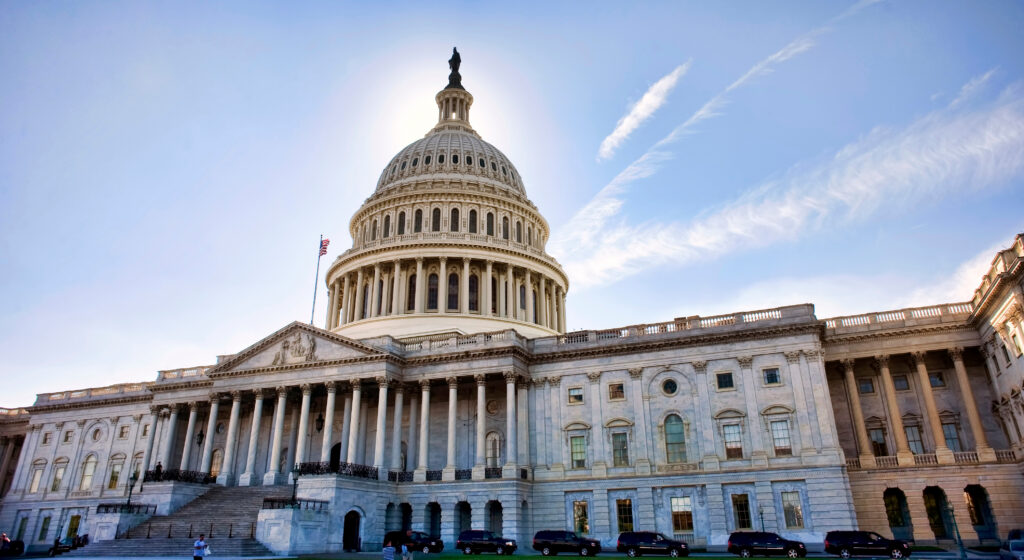What Is the Beef Checkoff Program?
The checkoff is a mandatory fee that many U.S. farmers, ranchers, and producers pay every time they sell any of 21 commodities, including beef, pork, corn, and soybeans.
Once upon a time, checkoff programs were voluntary and used money to provide producers with research, technological innovation, and market development to advance their products. Well-known examples of checkoff-funded advertising campaigns are “Got Milk,” “Pork. The Other White Meat,” “The Incredible, Edible Egg,” and “Beef. It’s What’s for Dinner.” But over time, checkoff programs have slid towards corruption. Today they are little more than a funnel for billions of dollars to flow from the pockets of farmers and ranchers, through the USDA and individual government commodity boards, and into the pockets of trade and lobbying organizations. Those same trade and lobbying organizations then turn around and promote policies that force producers to get with big ag corporations, or get out of the business all together.
The beef checkoff program has been a particularly bold offender. And the release of the 2021 beef checkoff budget all but guarantees that the National Cattlemen’s Beef Association (NCBA) and other trade and lobbying groups like it will be pushing the same old pro-corporate, anti-independent-producer agenda.
We are already in a world where farmers and ranchers are being shut out of markets by big ag corporations at an alarming pace. Policy makers should, at the very least, see that the money that producers are required to pay on every head of cattle they sell actually benefits them. This hasn’t been the case.
The Cattlemens’ Beef Board and the USDA, who administer checkoff funds, are essentially in the business of picking and choosing who will succeed in the beef market — and you don’t have to look far to see who their allies are — just follow the money. This year, Catttlemens’ Beef Board favorite, the National Cattlemen’s Beef Association (NCBA), can look forward to receiving almost two-thirds of all beef checkoff dollars.
This begs the question: why do government agencies have the role of choosing winners and losers in the marketplace? The era of mandatory checkoff funds has also been the era of declining beef consumption and unprecedented market consolidation, with four companies now controlling 85% of the nation’s beef processing. It’s safe to say that attempts made to better the beef market with beef checkoff funds in the past couple of decades have not been successful.
How Is the Money Spent?
To be sure, we’re taking a closer look at some key categories from the 2021 beef checkoff fund to see where the ~$40 million producer-earned dollars will be spent this year:
Promotion: “Includes advertising, merchandising and new product development as well as training and promotional partnerships with restaurants and supermarkets that stimulate sales of beef and veal products.”
It’s no secret that successful advertising can improve your bottom line, at the same time, we can’t help but wonder: why is the National Cattlemen’s Beef Association (NCBA) — a trade and lobbying organization — the receiver of 9 out of 10 million dollars set aside for marketing? Some of the NCBA’s marketing tactics have been less than savory, including last years “beefshi:” a campaign promoting sushi made with beef products. The idea of beefshi is almost comical, until you remember that farmers and ranchers struggling to feed their families and keep their homes were forced to foot the bill.
Industry Information: “Strives for an accurate understanding of the beef industry and helps maintain a positive cattle-marketing climate.”
Again, the NCBA is enjoying the lion’s share of these checkoff dollars, using 3 out of 4.8 million “Industry Information” funds to educate producers on what a great job the NCBA is doing at spending their checkoff dollars. Imagine a world where checkoff dollars were spent on programs that benefit the farmers and ranchers funding them, instead of convincing them to be okay with involuntarily funding an organization that has opposed pro-farmer and rancher policies like the Packers and Stockyards Act and Country of Origin Labeling.
Producer Communications: “Informs producers and importers about how their Checkoff dollars are invested through The Drive newsletter (printed and e-newsletter versions), media relations, thought leadership, social media, an educational website and other tactics.”
The Cattlemen’s Beef Board (the individual government commodity board that administers checkoff funds along with the USDA) has gifted themselves 1.6 million checkoff dollars to tell producers how their checkoff dollars are being spent. Between sky high NCBA salaries and a parade of money-funneling scandals, the Cattlemen’s Beef Board has successfully created the need for hard-earned producer dollars to be spent convincing producers there is no corruption, when time and time again, it has been shown that there is.
While other checkoff budget categories like research can more directly improve business for producers, it is clear that the majority of checkoff dollars being spent on consolidating the power of a few. The checkoff system does, sometimes, do what it is intended to do. But too many millions of dollars are spent elsewhere by primary checkoff funds contractor, NCBA, and something’s got to give.
What Are We Doing About It?
Checkoff corruption isn’t exclusive to beef. Earlier this year, Farm Action submitted public comments to USDA calling for lamb checkoff reform. Egg and dairy checkoffs have also been scrutinized for their misuse of checkoff funds.
So how do we tackle the problem? To start, a return to a voluntary checkoff would allow farmers, ranchers and producers to opt into checkoff payments as they could when the programs were first envisioned. This gives back power to producers: if the checkoff program is benefiting them, they can show support by opting in. If it is not beneficial, they can voice opposition by keeping their money and putting it to work on their farm or ranch.
Voluntary or not, we need checkoff reform. The Opportunities for Fairness in Farming (OFF) Act provides key policies to end checkoff corruption. If implemented, it would prohibit lobbying, rein in conflicts of interest, and stop anti-competitive activities that harm other commodities and consumers. It would also force checkoff programs to publish their budgets and undergo periodic audits so that farmers and ranchers know where their hard-earned money is going.
That’s the first step, but the end of the day, we may just need to call it. If checkoffs prove to be beyond repair, they should be eliminated. There is one thing we know for sure: farmers and ranchers should have a say in where their hard earned money goes.
Written by Anna Straus; designed and edited by Angela Huffman; concept developed by Joe Maxwell, Angela Huffman, and Anna Straus.




